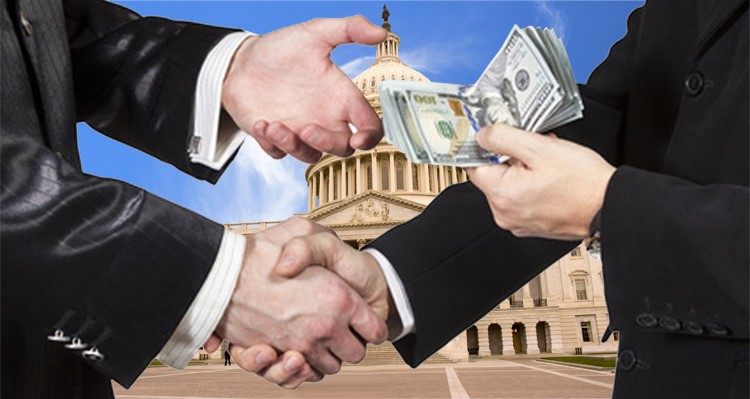
A recent study by Princeton University shows that American democracy is under attack by rich people and corporate interests that have an ever increasingly powerful grip on U.S. government policy, that public opinion has “near-zero” impact on U.S. law.
The study, entitled Testing Theories of American Politics: Elites, Interest Groups, and Average Citizens, was published by political scientists Martin Gilens, of Princeton, and Benjamin Page, of Northwestern, and found that: “The preferences of the average American appear to have only a miniscule, near-zero, statistically non-significant impact upon public policy.”
Gilens and Page continue, noting:
Americans do enjoy many features central to democratic governance, such as regular elections, freedom of speech and association, and a widespread (if still contested) franchise. But we believe that if policy making is dominated by powerful business organizations and a small number of affluent Americans, then America’s claims to being a democratic society are seriously threatened.
In their conclusion, they have an even more dismal conclusion:
In the United States, our findings indicate, the majority does not rule—at least not in the causal sense of actually determining policy outcomes. When a majority of citizens disagrees with economic elites and/or with organized interests, they generally lose. Moreover … even when fairly large majorities of Americans favor policy change, they generally do not get it.
Elaborating on the study, RepresentUs reports that “From taxation to national debt, education to the economy, America is struggling to address our most serious issues. Moneyed interests get what they want, and the rest of us pay the price.”
In the last 5 years alone, the 200 most politically active companies in the US spent $5.8 billion influencing our government with lobbying and campaign contributions.
Those same companies got $4.4 trillion in taxpayer support — earning a return of 750 times their investment.
And to make matters worse, in a post-Citizens United world,
As the cost of winning elections explodes, politicians of both political parties become ever more dependent on the tiny slice of the population who can bankroll their campaigns.
To win a Senate seat in 2014, candidates had to raise $14,351 every single day. Just .05% of Americans donate more than $10,000 in any election, so it’s perfectly clear who candidates will turn to first, and who they’re indebted to when they win.
And to top matters off, as RepresentUs concludes:
Our elected officials spend 30-70% of their time in office fundraising for the next election. When they’re not fundraising, they have no choice but to make sure the laws they pass keep their major donors happy — or they won’t be able to run in the next election.

You must be logged in to post a comment Login